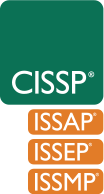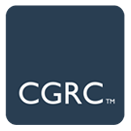Official (ISC)² CCSP Training – Course Outline
Cloud Security
The Official (ISC)² CCSP training provides a comprehensive review of the knowledge required for understanding cloud computing and its information security risks and mitigation strategies. This training course will help students review and refresh their knowledge and identify areas they need to study for the CCSP exam.
Official (ISC)² Online Self-Paced CCSP Training includes:
- Tailored adaptive learning experience
- Interactive, engaging courseware
- Data-driven analytics dashboard for real-time feedback on learner progress
- Robust search functionality to narrow topics
- Sliders to gauge confidence with item answers
- Digital textbook
- Knowledge checks
- Key takeaways
- Interactive content
- Online interactive flash cards
- Practical assessment
- Email learner support
- 24/7/365 chat technical support
- Education guarantee*
Official (ISC)² Online Instructor-Led Training includes:
- Live virtual instruction from an (ISC)² Authorized Instructor
- Virtual collaboration with classmates
- Recordings of live virtual sessions
- Real-world scenarios
- Digital textbook
- Knowledge checks
- Online interactive flash cards
- Practical assessment
- Email learner support
- 24/7/365 chat technical support
- Education guarantee*
*If you don't pass the exam the first time, access the same training again at no cost to you (within one year from the end of the initial training). Education Guarantee covers the cost of the second course only.
Who Should Attend
The training seminar is ideal for those working in positions such as but not limited to:
- Cloud Architect
- Cloud Engineer
- Cloud Consultant
- Cloud Administrator
- Cloud Security Analyst
- Cloud Specialist
- Auditor of Cloud Computing Services
- Professional Cloud Developer
Course Agenda
- Domain 1. Cloud Concepts, Architecture and Design
- Domain 2. Cloud Data Security
- Domain 3. Cloud Platform & Infrastructure Security
- Domain 4. Cloud Application Security
- Domain 5. Cloud Security Operations
- Domain 6. Legal, Risk and Compliance
Course Delivery Methods
Course Objectives
After completing this course, the student will be able to:
- Describe the physical and virtual components of and identify the principle technologies of cloud based systems
- Define the roles and responsibilities of customers, providers, partners, brokers and the various technical professionals that support cloud computing environments
- Identify and explain the five characteristics required to satisfy the NIST definition of cloud computing
- Differentiate between various "as-a-Service" delivery models and frameworks that are incorporated into the cloud computing reference architecture
- Discuss strategies for safeguarding data, classifying data, ensuring privacy, assuring compliance with regulatory agencies and working with authorities during legal investigations
- Contrast between forensic analysis in corporate data center and cloud computing environments
- Evaluate and implement the security controls necessary to ensure confidentiality, integrity and availability in cloud computing
- Identify and explain the six phases of the data lifecycle
- Explain strategies for protecting data at rest and data in motion
- Describe the role of encryption in protecting data and specific strategies for key management
- Compare a variety of cloud-based business continuity / disaster recovery strategies and select an appropriate solution to specific business requirements
- Contrast security aspects of Software Development Lifecycle (SDLC) in standard data center and cloud computing environments
- Describe how federated identity and access management solutions mitigate risks in cloud computing systems
- Conduct gap analysis between baseline and industry-standard best practices
- Evaluate Service Level Agreements (SLAs) for cloud computing environments
- Conduct risk assessments of existing and proposed cloud-based environments
- State the professional and ethical standards of (ISC)² and the Certified Cloud Security Professional
 Certified in Cybersecurity
Certified in Cybersecurity  SSCP
SSCP  CISSP
CISSP  CISSP Concentrations
CISSP Concentrations  CCSP
CCSP  CGRC
CGRC  CSSLP
CSSLP